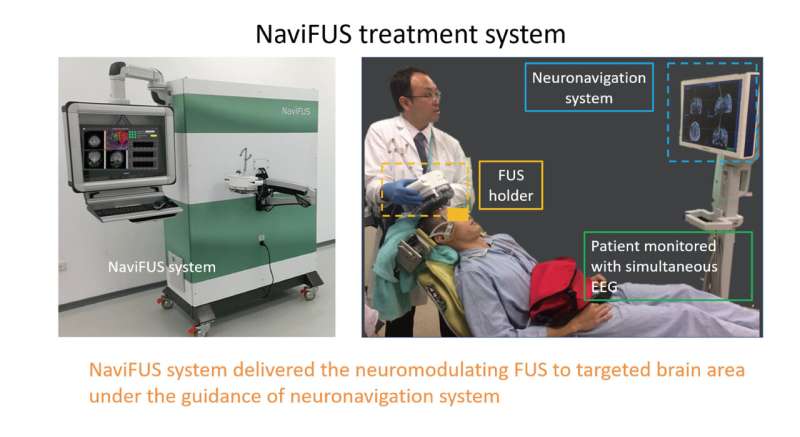Results from a study published in Epilepsia suggest that focused ultrasound, which can be used to non-invasively target circuits in the brain, may benefit some patients with epilepsy who experience seizures that do not respond to standard anti-seizure medications. Credit: Dr. Yu
Results from a study published in Epilepsia suggest that focused ultrasound, which can be used to non-invasively target circuits in the brain, may benefit some patients with epilepsy who experience seizures that do not respond to standard anti-seizure medications.
In the study of six patients with drug-resistant seizures, two patients had fewer seizures within three days of receiving focused ultrasound; however, one patient showed signs of more frequent subclinical seizures (which are not felt by the individual).
Imaging tests after the treatment revealed no negative effects on the brain. One patient reported feeling heat on the scalp during the treatment, and one patient experienced temporary memory impairment that resolved within three weeks.
"Neuromodulation is an alternative treatment for drug-resistant epilepsy. Compared with the present modalities used in neuromodulation for epilepsy, focused ultrasound can access deeper brain regions and focus on the main target of the epileptic network in a relatively less invasive approach," said senior author Hsiang-Yu Yu, MD, of Taipei Veterans General Hospital, in Taiwan. "It gives new hope and sheds new light for patients with drug-resistant epilepsy."
November is National Epilepsy Awareness Month.
More information: Cheng‐Chia Lee et al, Pilot study of focused ultrasound for drug‐resistant epilepsy, Epilepsia (2021). DOI: 10.1111/epi.17105
Journal information: Epilepsia
Provided by Wiley























